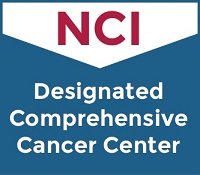Proton Therapy for Mesothelioma
Proton therapy is a highly targeted form of radiation therapy that localizes the radiation exposure with reduced excess radiation affecting the lung, heart or esophageal tissues around it.
Treating mesothelioma with radiation therapy is often made more difficult by having to be aware of the sensitive tissue in and around the lungs.
Because of the precision of proton therapy, the risk for side effects to the heart and lungs can often be reduced.
The images below compare the two forms of radiation therapy one UMGCCC mesothelioma patient received.
On the left is traditional radiation therapy, and on the right is proton therapy. The colored areas denote the radiation doses to the patient's chest.
In the proton therapy image, on the right, the normal lung is spared from radiation.

Sparing the healthy lung from unnecessary radiation exposure using proton therapy can reduce the risk for complications when compared to regular radiation therapy.
The Maryland Proton Treatment Center, located on the University of Maryland BioPark Campus, is operated and managed by the University of Maryland School of Medicine and its Department of Radiation Oncology.


